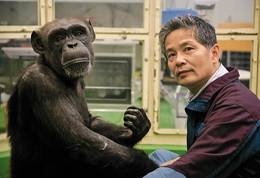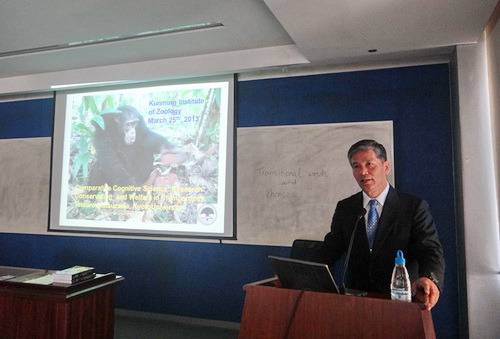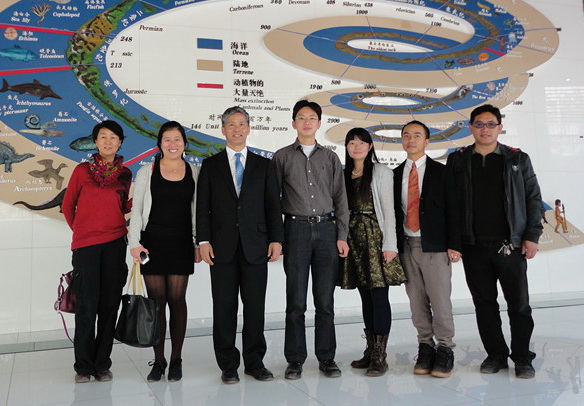
On March 25, Professor Testuro Matsuzawa from Kyoto University, the current president of the International Primatological Society,visited the Kunming Institute of Zoology (KIZ), Chinese Academy of Sciences and delivered a lecture on “Comparative cognitive science: Research, conservation, and welfare of the chimpanzees”. The lecture was hosted by KIZ’s acting director Prof. Yao Yong-Gang.
Professor Matsuzawa has been studying chimpanzee intelligence both in the laboratory and in the wild over 35 years. On the lecture, he introduced what the “comparative cognitive science” studies, and why and how he devoted himself into the study of chimpanzees. Since 1978, he started the famous the laboratory study, known as "Ai-project", which has been focusing on the language-like skills and the concept of numbers in a female chimpanzee named Ai in the Primate Research Institute of Kyoto University, Japan. The result of his laboratory studies showed that chimpanzees can represent, to some extent, both the cardinal and the ordinal aspect of number. He showed the video clips of the trained three chimpanzees finishing identified Arabic numerals, colors, even Japanese characters of colors. The study also showed through the revolution, the humans lost immediate memory but acquired language capability.
He, afterwards, showed the audience the study on the behavior of wild chimpanzees since 1986 in Bossou and Nimba, Guinea, West Africa. Bossou chimpanzees can use a pair of mobile stones as hammer and anvil to crack open oil-palm nuts. Interestingly, the elder chimpanzees didn’t teach the young ones how to crack nuts; instead, the young ones learnt by close-watching and repeating, which Prof. Matsuzawa called the learning mechanism as “Education by master-apprenticeship”.
At last, he emphasized the importance of animal welfare and the conservation of chimpanzees.
After the lecture, he had a discussion with researchers and students at KIZ. He also visited the Kunming Natural History Museum of Zoology.



(By Chun-Yu Liu)
